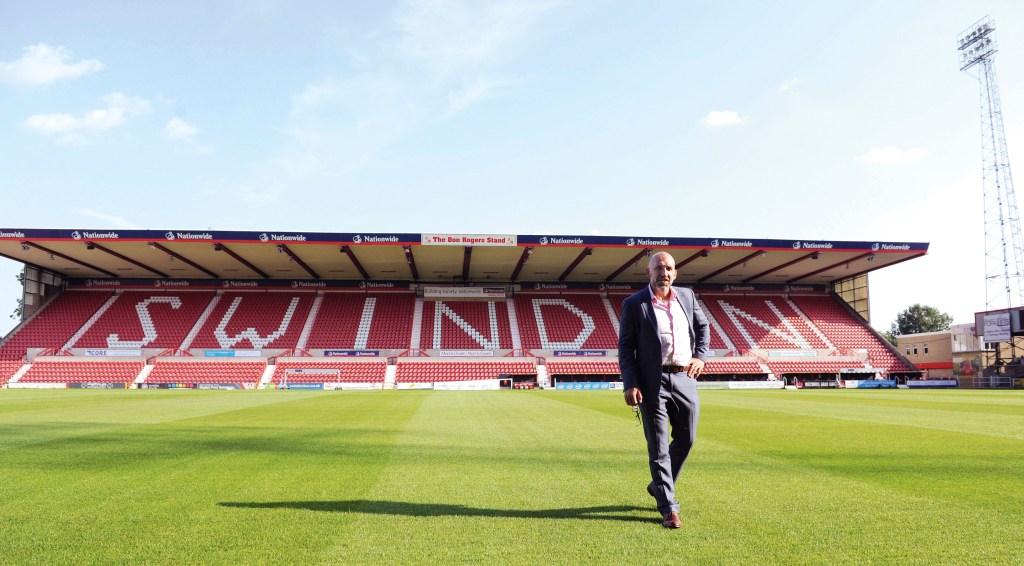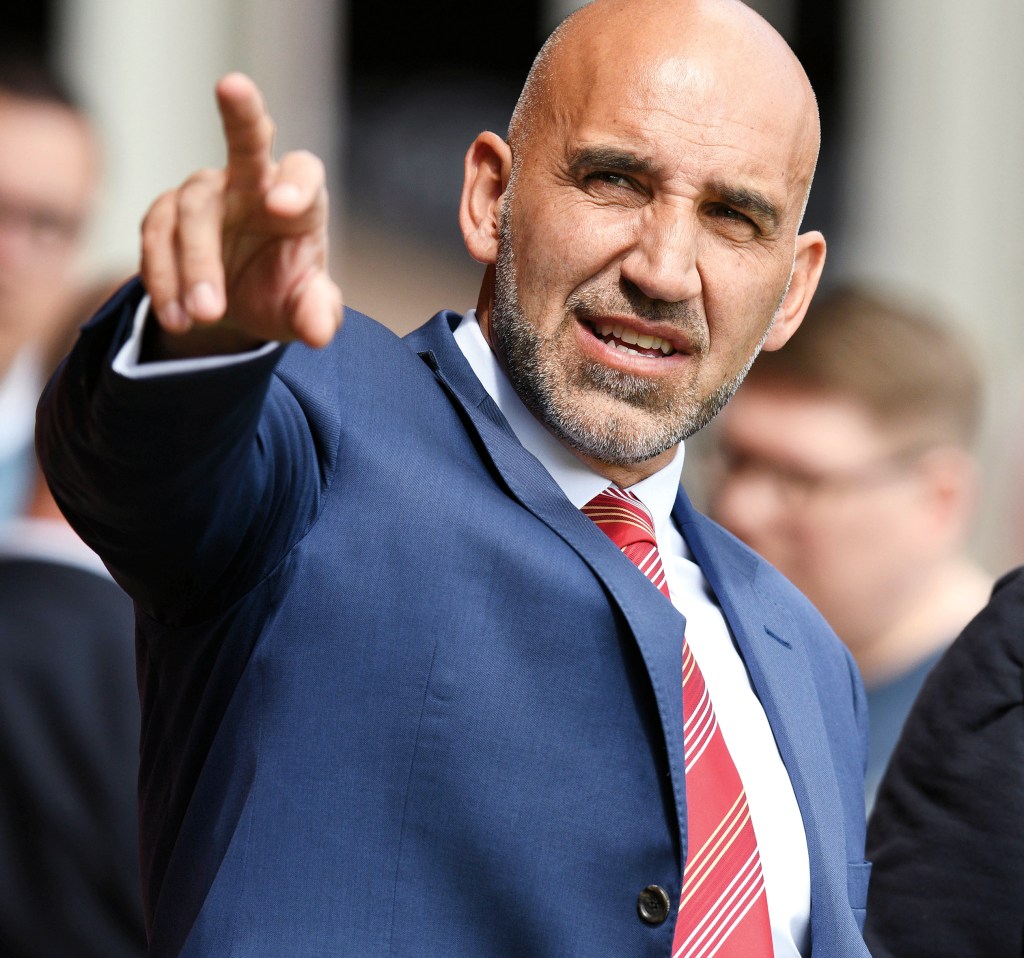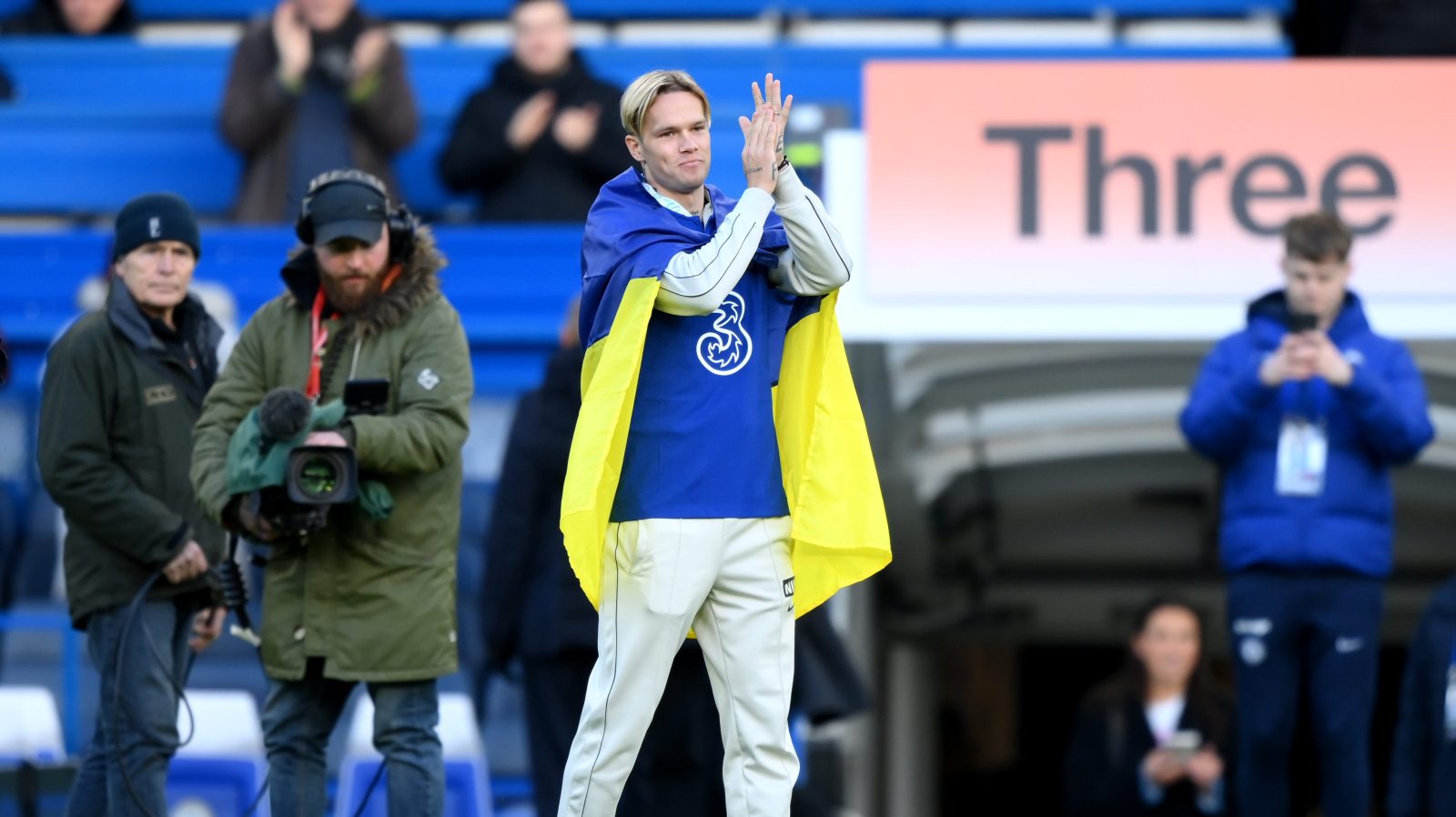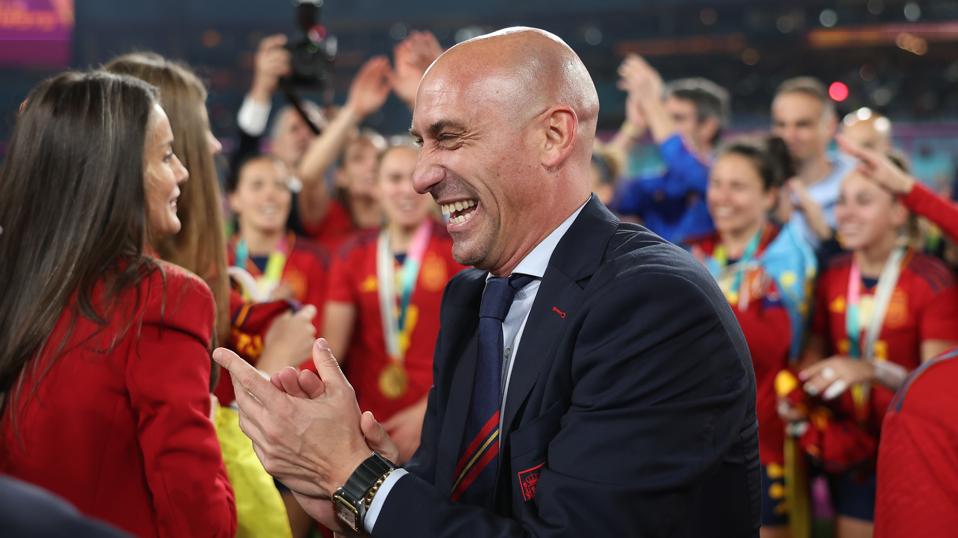Australian plumber Clem Morfuni bought one of the oldest clubs in the UK. What happened next shows success isn’t always measured in dollars – or trophies.

Sydney plumber Clem Morfuni took full ownership of English fourth-tier football club Swindon Town 16 days before the 2021-22 season kicked off.
He paid 212,500 pounds sterling after a bitter legal battle and the club was odds-on favourite to be relegated – for the second year in a row – to semi-professional oblivion.
The first thing Morfuni did was to visit the woman who did the accounts. You don’t build a $200-million-a-year plumbing empire across four continents without understanding the books.
“How much have we got in the bank?” he asked.
“Ten pounds,” she said. It wasn’t clear how much they owed.
“Give me all the invoices,” he said. “Let’s collate them together.” They calculated the debt at 4.5 million pounds. The players – all full-time professionals – hadn’t been paid for two months and only six were on contract. They had to sign a full squad in two weeks. They had no CEO, no football manager, no assistant coaches, no jerseys, no bus and the pitch was rewilding itself in the absence of a groundsman.
Morfuni paid the players first. They needed uniforms. Puma was owed about 200,000 pounds. Morfuni called the sportswear manufacturer. “I can’t put all the money in overnight. Will you take 10 grand?”
“No.”
“Will you take 20?”
“Okay.”
Morfuni gave his credit card details.
The bus company was owed 6,000 pounds. How would they get to their first friendly away game? Morfuni rang the bus guy. “I’ll give you two grand now.”
The bus was back.
Throughout his years building his plumbing business, Axis, which operates across Australia, New Zealand, Thailand, the UK and the US, Morfuni could lose a senior manager and nobody cared.
“Clem Morfuni has not only rebuilt a broken League Two football club but brought an entire town together and galvanised communities.”
– Swindon Advertiser
When it came to hiring a new football manager, effectively the head coach, the media was all over it. Bookies were taking bets on who he’d appoint. “As a plumber … you’re not sitting there doing media training.”
Morfuni secured the club’s 12th manager in six years, Ben Garner, and the assistant coaches. They signed players. He paid the rent on the ground that hadn’t been paid for 15 months.
Garner looked at the weeds swaying in the breeze on the pitch and said they couldn’t play on it. “Mate, we need to play,” said Morfuni. “We need the revenue.”
The groundsman hadn’t worked in months, and they were conducting an “investigation” to find him. They got him in, 10 days before a home friendly. When Morfuni started to explain the problem to him, he said, the groundsman replied by starting to explain grass.
“Mate, I don’t really give a shit,” Morfuni said. “How do we fix it?”
“I can do it in 10 days. I’ll start Monday.”
“Uh, uh. We’ll start now.”
“But I haven’t worked for three months.”
“Good. At least you’ll be rested.”
Come match day, the pitch was an immaculate cross-hatched carpet.
Morfuni, 52, had come a long way. His father, Nick, died of cancer when he was nine. His mother, Rosa, battled to raise three kids in the Sydney suburb of Ryde. Morfuni left school at 15 to do his plumbing apprenticeship. He didn’t want to be a plumber, but knew it was a good trade. He rose to foreman before starting Axis in Sydney in 1994. By 2002, it had grown to a staff of 40 and he told his general manager he was going to expand to Brisbane.
“Why?” the general manager, George Spyropoulos, asked.
Morfuni didn’t know why. “We’re just doing it, okay.” Soon after, Axis spread to the rest of Australia and New Zealand.
He’d been to England in 1993 as part of a world trip and hadn’t been impressed. “It’s cold. It’s wet. It’s miserable, and the people are like that too.” But then, in 2006, he went to Germany for the football World Cup and was blown away by the magic of soccer. He’d only started playing as an adult because his mum, suffering the grief of losing a husband, hadn’t been able to bear the thought of him being injured and so had never let him play as a kid.
He came home from Berlin via the UK. “It was summertime and London was buzzing and I thought, ‘Wow! What a city. I’m going to set up a business here.’ I told my accountant and he said, ‘What for? You’re mad.’ And I go, ‘No, I’m going to do it.’ I just wanted to do it. People ask me why and I don’t know. I get in my head that I want to do something, and I do it.”
Like buying a football club.

That’s how he found himself in Swindon Town, population 233,000, about two hour’s drive west of London. It had one of the oldest football clubs in the country, having spent most of its 143-year history bouncing between the second and third tiers. Its 15,500-seat stadium had not filled often since the club was trundled out of its one and only year in the Premier League in 1994. Morfuni had come on board as shirt sponsor in 2013, then 15% shareholder, then full owner in July 2021.
Fixing the business side of the club was almost the easy part. The hard part was the supporters. They were cynical after a succession of owners had left it about to fall out of League Two and the lowest point in its history.
He knew that if he couldn’t bring the fans with him, the club was nothing. On the day he bought it, he declared to the fans that he would not take any money out of the club.
“I will be over as often as I can (or as much as my family will let me); I don’t want to be an aloof owner on the other side of the world … My aim isn’t to use the club as a vehicle to pay for my lifestyle. I will provide full transparency of the financial position of the club at all times.”
Clem Mofuni’s declaration to fans
The club had four rival supporters’ clubs who didn’t seem to like each other. He organised a monthly meeting with them to answer any questions and to try to bring them together.
He started playing in a regular Wednesday night supporters’ soccer game. He had a session in the cricket nets where supporters could bowl at him. (He had to ask the better ones to stop aiming at his head.)
He pulled beers for the fans at the pub outside the ground. He had to be taught how to do it because he’d never been a drinker. Then the other pubs demanded he pull beers for them too. So he did. He drove a truck around town with a loudspeaker, spruiking season tickets.
The first game of the season was away to Scunthorpe, 300km to the north. Morfuni spent the first half in the director’s box and got a selfie with Scunthorpe fan Ian Botham. It was nil-all at half-time when he decided to go out to the 800 or so Swindon fans who’d made the trip. When they realised who was among them, they started singing. The song was about him. Something about “Super Clem”.
Scunthorpe scored and it started raining. Morfuni started to feel like he was bad luck. But then Swindon scored. And another. And another! “They go bonkers. There’s YouTube of it. They’re all jumping on me, patting my head.” He started to get a sense of what football means to the English. Don’t ask him to describe it.
He still can’t. But he can feel it.
Third round of the FA Cup they drew Manchester City at home. To see some of the world’s best footballers gracing the once-weedy ground was more than a bit surreal for everybody. Every one of the 15,000 seats was occupied, the media box was full. “Their team on the pitch was probably worth 420 million pounds,” says Morfuni, who met the City CEO.
“I said to him, ‘one of your players’ legs is worth our whole team.’”
Clem Morfuni to the Manchester City CEO
They lost 4-1. “When we scored it was unbelievable … To score against Man City was another level.”
With four games left to play last season, Swindon Town were sitting in 11th place on the league, safe from relegation. But the fairytale was not over. They won their last four games to barnstorm into the play-offs for promotion. A long, agonising penalty shootout, however, saw them fall one game short of the final playoff … But there’s always this season.
Morfuni recruited one of the senior supporters’ group members, Rob Angus, as club CEO. Angus left a 26-year career at Britain’s largest building society, Nationwide, to take the job.
He says Morfuni can’t walk down the street without being stopped for a selfie.
“Swindon’s a town of a quarter of a million people and the football club’s a big thing. He’s really engaged with the local people. There’s still lots to do. We’ve got the debt down from 4.5 million pounds to 1.5 million. There’s still lots of legal battles to fight and putting together a squad that can take us a step further and get us out of League Two. But the way Clem has delivered on that openness and transparency is key. We were getting over 10,000 crowds last season, the highest gates since the Premier League days.”
Vic Morgan, a Swindon Town supporter since the mid-sixties and who hosts supporters YouTube channel On the Sofa, told Forbes Australia all Swindon’s newfound success was down to Morfuni. “The takeover by Clem has breathed new life into a club which was on its knees twelve months ago. Clem has brought enthusiasm and made supporters believe that good things are happening, whereas last year there was just doom and gloom.”
The Swindon Advertiser wrote: “The Australian has ultimately helped guide Swindon back to a relative serenity rarely seen by fans. From the despair of July 2021 to the all-round optimism of 12 months later, Morfuni’s impact on Swindon – both as a club and as a town – has been extraordinary. Clem Morfuni has not only rebuilt a broken League Two football club but brought an entire town together and galvanised communities.”
More from Forbes



